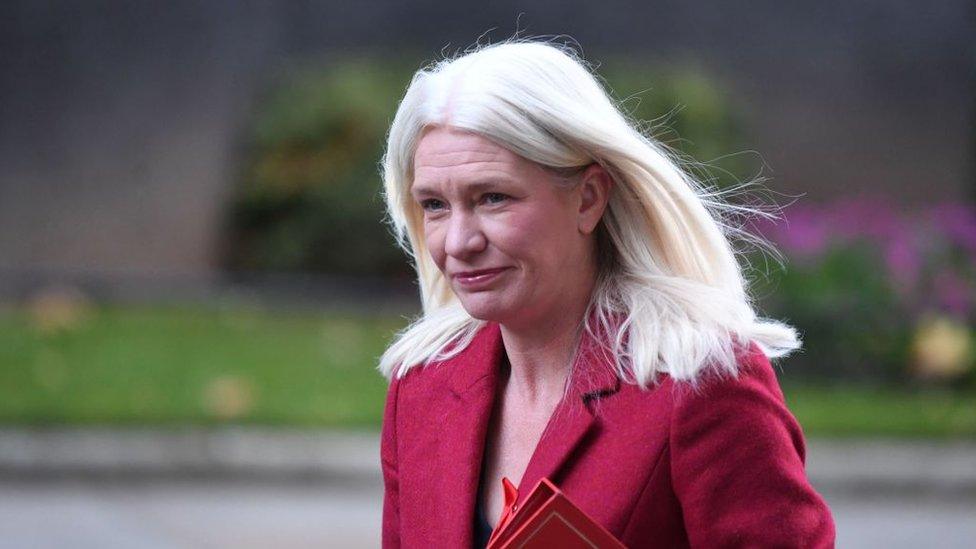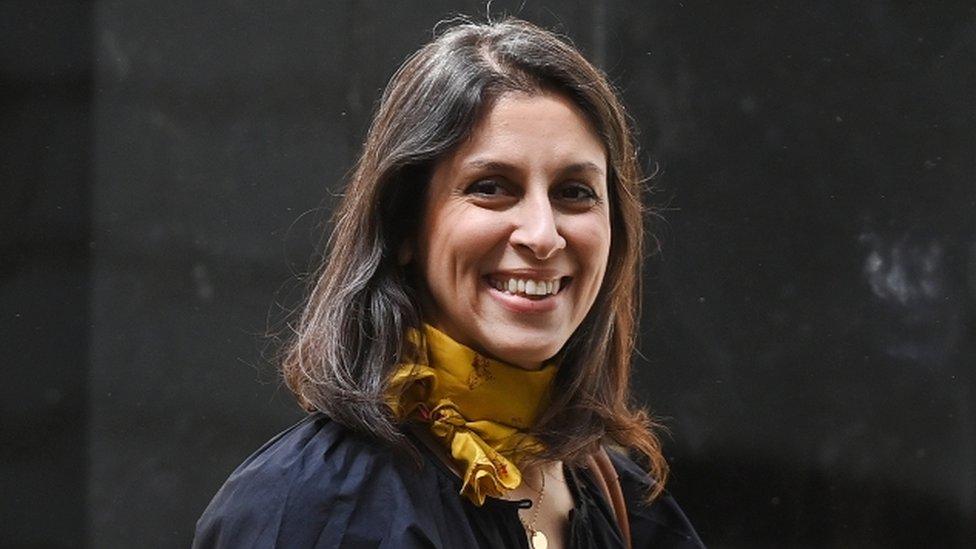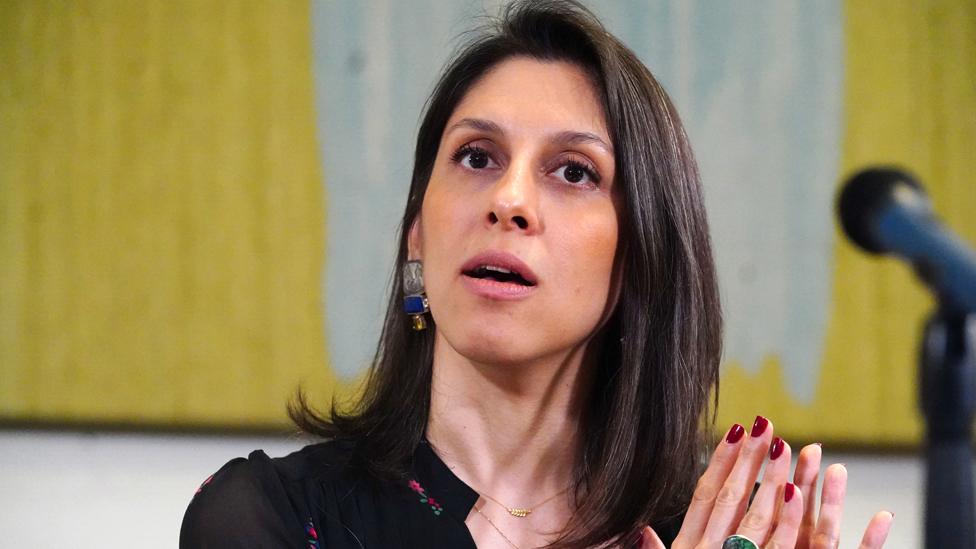No UK official forced Nazanin to sign confession - minister
- Published
Watch: Nazanin tells BBC she was forced to sign confession in Iran
No British official forced Nazanin Zaghari-Ratcliffe to sign a false confession, the UK government has said.
In a statement in the Commons, Foreign Office minister Amanda Milling said the UK official simply passed on the Iranian authorities' request.
"Iran made clear they would not allow her to leave Tehran airport unless Nazanin signed a document," she said.
Mrs Zaghari-Ratcliffe revealed to the BBC on Monday a UK official was present when she signed the statement.
Her lawyers have accused the UK of "apparent complicity" in the false confession.
The mother-of-one was detained in Iran for six years accused of plotting to topple the government. She was reunited with her husband and seven-year-old daughter in the UK after being released in March.
Fellow British-Iranian national Anoosheh Ashoori, detained since 2017 on spying charges, was released at the same time.
Speaking to the BBC's Emma Barnett on Woman's Hour, Mrs Zaghari-Ratcliffe questioned why the UK did not challenge Iran over forcing her to admit to crimes she did not commit as a condition of her release.
She described being taken away by Iranian Revolutionary Guards without seeing her parents and "made to sign the forced confession at the airport in the presence of the British government".
She added that she was told she would not be allowed to get on the plane back to the UK without signing the confession and said Iranian officials filmed the whole process.
Speaking in Parliament, Ms Milling told MPs: "A UK official was present to help facilitate both Nazanin and Anoosheh Ashoori's departure, and passed on the message from the IRGC (Islamic Revolutionary Guard Corps) that she needed to sign a confession.
"Given the situation Iran put Nazanin in at the airport, she took the decision to sign the document. No UK official forced Nazanin to do so."
Describing Iran's treatment of Mrs Zaghari-Ratcliffe as "horrendous", Ms Milling said Iran had a practice of insisting detainees sign documents before their release.
"Nothing about the cruel treatment by Iran of detainees can be described as acceptable, including at the point of release," she added.
On Monday it was revealed Mrs Zaghari-Ratcliffe's lawyers had written to Foreign Secretary Liz Truss claiming the UK's lead negotiator told her a confession would have no value and she needed to sign the document if she wanted to get on the plane.
Human rights organisation Redress, acting on behalf of Mrs Zaghari-Ratcliffe, said the UK's "apparent complicity" in the false confession left her "deeply distressed".
In a letter, Redress wrote: "Mrs Zaghari-Ratcliffe had resisted intense pressure to make a false confession on many occasions during interrogations and during her eight-and-a half months in solitary confinement.
"The UK's actions would have appeared to Iran as the UK agreeing to play by its rules.
"This emboldens Iran to continue its abuse in other cases."

Government minister Amanda Milling said Mrs Zaghari-Ratcliffe took the decision to sign the document
Tulip Siddiq, MP for Hampstead and Kilburn who campaigned for her constituent's release, said: "It was only when a UK official told her that she had to sign it if she was going to board the plane that was waiting to take her home, that she finally caved and gave Iran what they wanted.
"Nazanin returned home but the toll this took on my constituent after six years of detention is unimaginable and unacceptable and I do not accept what the minister is saying, that no-one forced her."
She also asked whether the prime minister or foreign secretary authorised UK officials to advise Mrs Zaghari-Ratcliffe to sign the false confession.

WHY ARE WE COOKING SEPARATE DINNERS?: How family meals can save money and reduce food waste
BUYING AN ELECTRIC CAR?: Eight things you need to know before making that leap

Related topics
- Published23 May 2022

- Published23 May 2022

- Published13 May 2022

- Published21 March 2022
